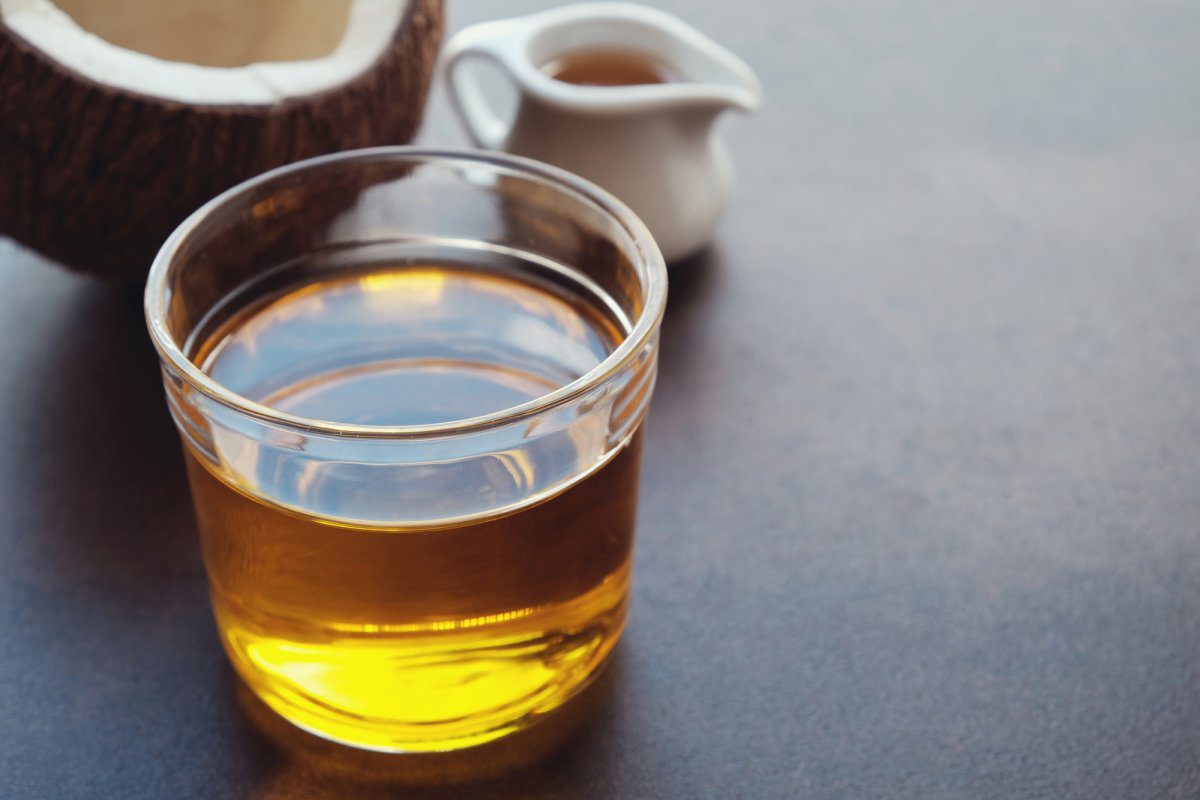
The best online fitness resource you'll ever need. We filter out the BS to ensure you meet your health and fitness goals!

The best online fitness resource you'll ever need. We filter out the BS to ensure you meet your health and fitness goals!

In your quest to build a better body and improve your health, you’ve likely heard about MCT oil a couple of times, at least. But what exactly is this MCT oil, and isn’t fat the devil? As it turns out, fat hasn’t really been the devil since the 1970’s, as we’ve learnt that well-timed fats can actually help you on your quest.
But enough about that. Back to the oil of the hour; MCT. Let’s get to it.
MCT oil, or rather medium-chain-triglyceride oil, is as the name suggests, a triglyceride- a molecule that has fatty acids (3 to be precise) bound to glycerol alcohol. Triglycerides vary in their chain length; some are short, some are long, while others are classified as medium-chain.
The beauty about MCTs is the fact that they do not require any sort of enzymatic breakdown, or metabolism by bile acids prior to absorption.
As it turns out, medium chain triglycerides find themselves in a sort of “sweet spot”. This is because they do not act in the manner characteristic of typical fats, since they are not storage oriented. Upon ingestion, they travel straight to the liver where they are oxidized, or are converted to ketones and they start doing their thing.
And what exactly is their “thing” you might ask? Let’s check that out now.
Ketosis is hands down one of the best ways to initiate body recomposition. Whether you are trying to lose 10 pounds, or 50, ketosis will help you get there faster. As a quick refresher if you’re not sure what ketosis is, think of it as your body having a hybrid car engine- one that can run on carbohydrates or fat.
Ketones (the products made from achieving a state of ketosis) are the by-products of fat metabolism. When carbohydrates are scarce, your body needs to find an alternative source of energy. That source is oftentimes fat, and result in the subsequent production of ketone bodies.
MCT oil is arguably superior to other types of dietary fat for initiating ketosis as it very quickly converts into ketone bodies without lengthy digestive processes.
No doubt you now appreciate why the ketogenic diet is so effective for weight loss- your body has no option but to destroy fat.
Know what derails even the most well-intentioned diet plan? Hunger. The primal need to eat, and not to mention the way we have been conditioned over the course of years is a strong deterrent against fasting and improving our health.
While eating frequently isn’t bad per se, the fact that you are eliciting an insulin response every couple of hours isn’t the way the hormone was meant to work.
Usage of MCT oil has been associated with appetite reduction, especially in overweight subjects, since it correlates to increased sensitivity to and levels of the hormone leptin, which decreases hunger.
Overweight and obese subjects are believed to have leptin resistance; a scenario whereby the body does not respond to satiety under the influence of leptin the way a normal person would.

First off, let’s get one thing clear- using fat to product energy in NOT as efficient as using carbohydrates. To continue the analogy of the hybrid engine vehicle, it can use the battery to do a fair share of travel, but gasoline remains the preferred fuel source.
In the beginning, you are likely to notice this acutely. Your performance will suffer as you make the switch (or reduce reliance on) from carbohydrates to fats. This change, known as “fat adaptation” is believed to be your body making the metabolic changes to convert fat more efficiently to the ketone bodies required to power through your workouts.
Eventually, after 4-12 weeks have elapsed, you will find yourself handling workout and exercise volume much better and not having to rely on carbohydrates.
One of the earliest mentions of MCT oil was during the launch of Bulletproof Coffee. Regarded by many as a godsend for ketogenic and intermittent fasting diets, the combination of caffeine and MCT oil made for a creamy coffee beverage without the need for additional sugar or milk.
Users of this beverage reported marked improvements to mental clarity and focus, since MCT oil bypasses the blood brain barrier and is converted into a usable energy form in the brain. The world renowned paleo expert Mark Sisson referred to the feeling of MCT on the brain as comparable to Walter White’s Formula (Breaking Bad reference in case you want to look it up), which is saying a lot about the level of stimulation you can experience.
Without a doubt, building up a strong immune system is on everyone’s mind these days, especially after seeing what the COVID-19 pandemic did to the world’s most vulnerable. MCTs have potential antibacterial and antiviral properties, interestingly being present in breastmilk.
Newborn babies have an immature immune system, one that puts them at high risk of infections shortly after birth. Medium chain triglycerides found naturally in mom’s milk may help prevent the transmission of infections, especially orally.
But of course, we’re not talking only about babies here. In adults too, there is potential for it as lifesaving stuff. Animal studies have indicated that by enhancing gut health, such as by making the membranes in the digestive tract less permeable to leaking, infections can be reduced.
Plus, increased antibody response and balancing pH all go a far way in supporting the immune system. And just food for thought- you probably never realized that over 70% of your immune system resides in your digestive tract. MCT oil supports appropriate colony sizes and population of these bacteria.
To put it simply, no. there are different types of medium chain triglycerides, classified by their chain length. In general, anything with a chain length of 13 and less is classified as “medium”, though you won’t necessarily be able to reap the benefits they are known for the higher along the chain you go (especially C12).
There are 4 common medium chain triglycerides:
MCTs are naturally occurring in a few food sources, although getting the specific ratio of C8 and C10 fragments is highly unpredictable. Not to mention the fact that overall content may fall on the lower end of the spectrum. Sources include along with approximate amount of MCT in each:

Many people get confused when talking about coconut oil and MCTs. MCTs are concentrated for that only- 100% medium chain triglycerides, while coconut oil is a cocktail of medium and long chain fatty acids. This explains why coconut oil only contains between 45-65% MCT.
This does not mean coconut oil is bad. It is actually a great source of MCT when now getting your feet wet in the world of ketogenic dieting or intermittent fasting. It is cheaper than concentrated MCT, and less likely to cause the gastric side effects.
Depending on the specific diet type you are most comfortable with, there are a few ways you can use it. For instance, if you are on a dedicated ketogenic diet, MCT oil consumed first thing in the morning and 30 minutes before your workout will give you the energy needed to power through.
You can consume it as-is, add to salads as dressing or even blend with a smoothie. Just try to limit amount consumed in one sitting to no more than 15ml (one tablespoon).
A common question many people wonder is “does MCT oil break a fast?”, and the answer to that is “it depends”. Depends on what you ask? The source and amount of the oil you take. For instance, if you take a purified MCT product with high concentration of C8 and C10, it is unlikely to kick you out of fasting benefits.
This is because MCT does not require particular digestion, but rather is rapidly absorbed and sent to the liver for production of ketone bodies. This makes MCT oil extremely helpful if working out while fasting.
MCT oil can definitely help you enter a state of ketosis faster, given that suitable conditions have been met. If you are consuming a surplus of carbohydrates, then it will not. However, if you are following ketogenic diet principles, or intermittent fasting, well times MCT oil supplementation will help speed up attaining a ketonic state.
This is because when insulin levels are low, lipolysis increases and in turn the liver starts increasing its output of ketone bodies.
If you’re wondering how to use MCT oil while intermittent fasting or when the best time, to a great extent it would depend on how you are practicing the fast. In general, since the 16:8 version of the intermittent fasting is the most popular, we will use that to answer this question.
First off, it is important to realize that a small quantity of MCT oil (between 5-15ml) taken at one sitting will not break a fast. That said, it makes sense to still fuel your body when it is needed most; upon waking up, and before exercise.
This might mean one dose at 7:00 and another at 11:00 (assuming that is the time you work out), or if you get your move upon immediately upon waking then one dose taken when you wake up will suffice.
The short answer to this is yes, you can. The longer answer, however, isn’t so clear cut. Personally, I think it is unnecessary, since, 1; you would have had your last meal not very long before this (assuming intermittent fasting or ketogenic dieting), and 2; it isn’t the same as taking casein before bed to spare muscle.
There have been anecdotal reports that people who practice this wake up with greater energy, and it makes sense to an extent, but the practicality evades me. Plus, while it is “technically” not calorie heavy, it still adds something to the bottom line.
Weight loss required a concerted effort on the diet and exercise fronts. MCT oil can definitely contribute to a well-structured plan, as it can promote usage of fat for fuel, with average weight loss of 5 kilos over the course of 8 weeks a fair average (based on intermittent fasting protocols).
You might start feeling s difference in as little as two weeks, however, from reduced bloating, to clothes fitting a little looser. However, water weight may be the first to go so don’t get overly excited during the first two weeks.
MCT oil is definitely something that can help you, both physically and mentally. This is especially true if you are intermittent fasting or following keto. If you’re not, there isn’t any real benefit to using MCT oil, although one study did find that combining it with carbohydrates prior to exercise improved performance (so if you’re trying to boost performance, maybe worth a shot).
You’ll want to limit the amount you consume initially to just about 5-15ml daily for the first week, and slowly increase to gauge gastric tolerance.
MCT oil can be an invaluable aide to help you reach your fitness goals, so give it a shot.